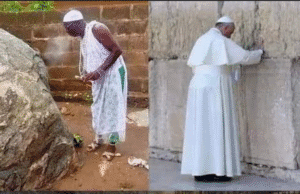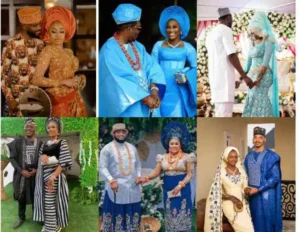Walk into any African wedding, and you’ll quickly realize—it’s not just about two people saying “I do.”
It’s a cultural festival. It’s a family reunion. It’s a bold display of tradition, color, sound, and deep meaning passed down for generations.
Across the continent, from the golden sands of Morocco to the red soil of Nigeria, wedding ceremonies are powerful expressions of identity, heritage, and unity. These are not just events. They are rites of passage that link the past to the future—where ancestors are honored, and new families are formed in front of the whole community.
And in Africa, community is everything.
Why African Wedding Traditions Matter So Much
In many Western-style weddings, you might hear “this is our day.” But in Africa, it’s “everybody’s day.”
Marriage here is more than romance. It’s about joining two families, building social bonds, and preserving cultural values.
Whether it’s the bride price (lobola) in Zulu weddings, the wine-carrying ceremony (Igbankwu) among the Igbo, or the bead-laced Maasai rituals, these customs carry deep layers of meaning.
They represent:
- Respect for elders
- Spiritual blessings
- Cultural pride
- Communal responsibility
Each tribe or ethnic group has its unique way of doing things, but they all carry the same core values: love, unity, and legacy.
Africa’s Rich Cultural Tapestry in Marriage Rites
Africa is not a country. It’s a continent with over 3,000 ethnic groups and more than 2,000 languages spoken (World Bank, 2022). Naturally, this cultural depth shows in the way we marry.
For example:
- In Ghana, Ewe families exchange gifts and blessings in beautifully choreographed ceremonies.
- In Kenya, Swahili weddings mix Islamic rituals with African flavors.
- In Lesotho, the Sotho people wrap the bride and groom in traditional wool blankets called Seanamarena—symbolizing warmth and continuity.
- In Morocco, Berber weddings can last up to seven days, filled with music, dancing, and symbolic garments.
No matter the tribe, every detail is intentional—from the choice of clothing and colors to the types of food served and the order of rituals.
The Role of Family and Community in African Weddings
Ask any African elder, and they’ll tell you: “Marriage is not for two people alone.”
In most traditions, it starts with the families. The groom’s family formally seeks the bride’s hand—often bringing along gifts or livestock. The bride’s family responds with blessings, conditions, or requests. Even before the actual wedding, negotiations and meetings go on for weeks or months.
Sometimes, families bring in uncles, aunties, community elders, or even traditional marriage counselors (in some Yoruba and Igbo communities, they’re called Alarina or Ndichie).
Their job? To guide, mediate, and preserve the dignity of both families throughout the process.
In some cultures like the Akan of Ghana, if the ancestors are not spiritually acknowledged, the marriage isn’t fully recognized.
So, it’s not just a couple’s union. It’s a spiritual and social contract.
Modern Weddings, Traditional Roots
Of course, things are changing.
Today, many African weddings include white gowns, tuxedos, or Instagram-worthy décor. But even with modern touches, most couples still hold on to traditional rites—because that’s what truly makes it African.
In Lagos, Abuja, Nairobi, or Accra, it’s now common to have both a church or court wedding and a traditional ceremony—sometimes on the same weekend.
And guess what? Most people still say the traditional wedding is the most fun, the most colorful, and the most meaningful.
West African Wedding Traditions
Now that we’ve explored the heart of African weddings, let’s dive into real-life examples—starting with West Africa.
Coming up, we’ll explore how the Ewe of Ghana and Togo and the Igbo of Nigeria celebrate love in powerful, symbolic ways.
Stay tuned.
Q: Why are African weddings so elaborate?
A: Because they’re not just for the couple. They involve families, ancestors, the community, and centuries of tradition—all packed into one unforgettable celebration.
Q: Are all African wedding traditions the same?
A: No. Africa is incredibly diverse, and each ethnic group has its own customs. But many share values like respect, unity, and family bonds.
Q: Do African weddings still follow traditional rites today?
A: Yes. Even modern weddings often include traditional ceremonies, especially in rural areas or among families that value cultural heritage.
West African Wedding Traditions — Ewe and Igbo Ceremonies Full of Meaning
In West Africa, weddings go beyond style and music — they’re deep-rooted cultural events full of meaning, pride, and powerful symbolism.
Two standout traditions in this region are those of the Ewe people of Ghana and Togo, and the Igbo people of Nigeria. While they come from different countries, both groups treat marriage as a sacred contract between families.
Let’s take a closer look.
Ewe Wedding Customs (Ghana & Togo)
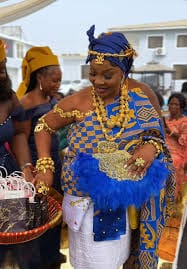
Ewe wedding traditions in Ghana and Togo
The Ewe people, mostly found in Volta Region of Ghana and parts of Togo, have a calm but elegant approach to marriage. It’s all about respect — for the bride’s family, for tradition, and for the community.
1. The Pre-Wedding Rituals: Asking the Question
Marriage here starts with a formal step called “Knocking on the Door” (Vɔvɔ nuɖeɖe in Ewe).
This isn’t just a visit — it’s a serious meeting. The groom’s family goes to the bride’s home with drinks, kola nuts, and cloth to officially ask for her hand. Elders from both sides are present.
It’s polite. It’s respectful. And it shows the groom’s family is serious.
2. The Gift Exchange: A Sign of Honor
Once the bride’s family agrees, the groom’s family presents customary gifts. These can include:
- Money (symbolizing stability)
- Drinks (symbolizing hospitality)
- Cloth (symbolizing care and warmth)
In some communities, they also give local herbs or beads, to spiritually protect the bride.
These aren’t just transactions. Each item carries meaning, often explained by elders during the event.
3. Traditional Attire: Kente Never Goes Out of Style
No Ewe wedding is complete without kente cloth.
The bride is dressed in vibrant, handwoven kente — sometimes layered with gold jewelry, anklets, and a beaded crown.
The groom wears a regal wrapper tied across his chest, usually in matching or complementary colors.
This isn’t fashion. It’s history woven into fabric.
4. Celebration: Music, Drums, and Dance
After the rites, it’s party time! Local drummers, dancers, and even praise singers make the event lively.
You’ll hear names being called out with chants and see elders bless the couple through dance. This is not a silent event — it’s full of joy, shouting, and celebration.
Want to see a modern Ewe wedding?
Check out this Ghanaian ceremony on MyJoyOnline or wedding features on BellaNaija Weddings.
Igbo Traditional Wedding (Nigeria)
Igbo traditional marriage rites in Nigeria
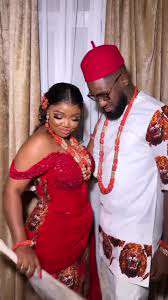
In Nigeria, no wedding season is complete without seeing at least one Igbo traditional marriage ceremony, often called Igbankwu.
It’s dramatic. It’s spiritual. It’s proudly Igbo.
1. First Step: The Introduction
Before anything else, the groom’s family visits the bride’s home for “Ime Ego” — the introduction.
Here, they declare their interest and meet the bride’s people. If the bride agrees, they move forward to prepare the list of bride price items (which varies by village).
It’s done with seriousness, but also with smiles and prayer.
2. Bride Price and Symbolic Gifts
Don’t mistake bride price for selling a daughter — it’s not that.
It’s a symbolic gesture of respect, usually including:
- Tubers of yam
- Kola nuts
- Palm wine
- Drinks
- Money
- Local fabric
The bride’s family may ask for these items according to their custom. Some lists are light, others can be long — but many families now keep it modest to avoid scaring the groom.
🔗 Read more on Igbo marriage customs here
3. The Igbankwu (Wine-Carrying) Ceremony
This is the big one. The bride, dressed in coral beads and a George wrapper, carries a cup of palm wine, walking through the crowd.
She must find her groom — who might be “hiding” in the crowd for fun.
Once she finds him, she kneels and offers him the drink in front of everyone.
This act confirms her choice. It’s loud. It’s proud. It’s beautiful.
Once he drinks, the crowd erupts in cheers.
4. Feasting, Dance, and Blessings
After the rituals, it’s time to dance and eat. Igbo weddings usually have live bands, traditional dancers, and massive buffets with dishes like:
- Jollof rice
- Isi ewu
- Abacha
- Palm wine
You’ll also see money-spraying — guests show support by spraying cash on the couple during their first dance.
Shared Themes Across Both Traditions
Though Ewe and Igbo weddings are different, they share key values:
- Respect for elders
- Family approval
- Public display of unity
- Symbolic gifts and attire
- Community celebration
These are not just weddings, they’re ceremonies that bond families, villages, and histories.
East African Wedding Traditions
Next, we move east to look at the Maasai and Swahili people, where colorful beads and Muslim traditions take center stage.
You’ll see how marriage mixes religion, beauty, and rhythm in Kenya and Tanzania.
Stay tuned.
Quick FAQs on West African Weddings
Q: What is the meaning of bride price in Igbo culture?
A: It’s a sign of respect and appreciation from the groom’s family to the bride’s, not a sale or transaction.
Q: Do Ewe weddings involve religious ceremonies?
A: While the Ewe are spiritual, the traditional wedding is more cultural. Religious blessings often happen separately.
Q: Can non-Ewes or non-Igbos marry using these customs?
A: Yes, but they usually need a cultural guide or elder to help follow the correct procedures and etiquette.
[/faq]
East African Wedding Traditions — Beads, Blessings, and Coastal Charm
From the highlands of Kenya to the Indian Ocean coastline of Tanzania, East African weddings reflect a beautiful mix of tribal identity, Islamic influence, and deep ancestral pride.
Whether it’s the bead-heavy Maasai ceremonies or the elegant Swahili nikah, this region is full of color, meaning, and spiritual celebration.
Let’s take a closer look at two standout wedding customs: Maasai and Swahili.
Maasai Wedding Traditions (Kenya/Tanzania)
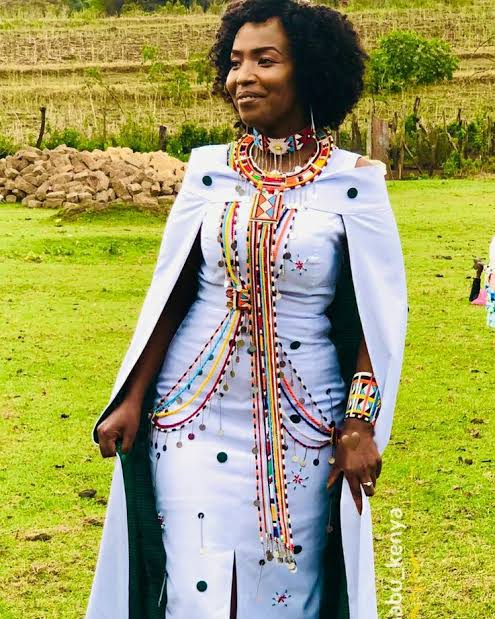
Keyword: Maasai wedding customs in East Africa
The Maasai people, known for their red shukas (cloth) and fierce warrior traditions, also have deeply symbolic marriage rituals that are passed down through generations.
Marriage here isn’t just about love. It’s about honor, beauty, and continuation of lineage.
1. Marriage Begins with Family Arrangements
In most Maasai communities, marriage is arranged by the parents.
The groom’s family approaches the bride’s family with an offer, often including livestock like cattle or goats as bride price.
Cattle here aren’t just animals — they represent wealth, respect, and blessings.
Once accepted, the families begin preparing for the traditional ceremony.
2. Bridal Attire: A Walking Work of Art
One of the most iconic images in any African wedding comes from the Maasai bride.
She wears:
- Brightly colored beaded collars
- Layered necklaces
- Ankle and wrist bangles
- Red ochre on her hair or body
Each bead color has meaning:
- Red = bravery
- White = peace
- Blue = energy
- Green = growth
This attire isn’t just for show — it speaks her story.
🔗 Watch a traditional Maasai wedding here
3. Ceremony of Song and Transition
On the wedding day, you’ll hear chants, claps, and traditional songs from women, sending off the bride with blessings.
After the rituals, the bride leaves her home and is escorted to the groom’s village, where the celebrations continue.
There’s no western-style ring exchange here. Instead, the gifts and presence of the community seal the union.
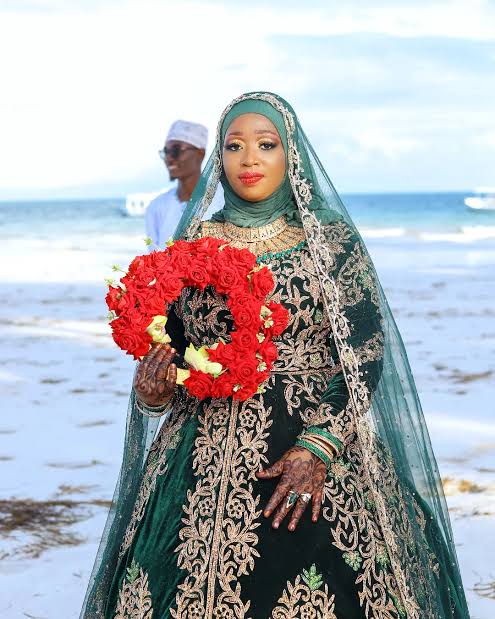
Swahili Wedding Traditions (Kenya/Tanzania Coast)
Swahili Muslim wedding customs
Now head toward the Indian Ocean coast — places like Mombasa, Lamu, and Zanzibar.
Here, the Swahili people — a cultural mix of African, Arab, and Persian heritage — celebrate weddings that reflect both Islamic teachings and African flair.
1. The Nikah: The Heart of It All
The Nikah is the Islamic marriage contract.
It’s a religious ceremony led by an imam, where the bride and groom (or their representatives) agree to the marriage in the presence of witnesses.
This is done at a mosque or the bride’s home. It’s short, but extremely significant.
Once this is done, the couple is officially married under Islamic law.
2. Henna Night (Hina) for the Bride
Before the wedding, the bride holds a henna night, where her hands and feet are decorated with beautiful henna designs.
This is a female-only event — filled with music, laughter, and beauty rituals.
Henna represents joy, protection, and beauty.
It’s similar to what you’ll see in Egyptian or Sudanese weddings, but with a Swahili twist.
3. Taarab Music and Coastal Glam
During the main celebration, Swahili weddings burst into life with Taarab music — a blend of African drums, Arabic instruments, and poetic lyrics.
Women dance, clap, and sing along while elegantly dressed in lesos (colorful wraps) and buibui (modest gowns).
Men often wear kanzu (long white robes) and a cap called kofia.
Traditional dishes like pilau, coconut rice, biryani, and mishkaki (grilled meat) are served to hundreds of guests.
🔗 Learn more about Swahili marriage culture via Daily Nation
What Ties These Traditions Together?
Both Maasai and Swahili weddings may seem very different — one tribal, the other Islamic — but they share some deep similarities:
- Family is at the center of the process
- Symbolic dress and food play a major role
- Community support and blessings are essential
- Cultural identity is proudly displayed
These aren’t just rituals — they are living expressions of East African pride.
Southern African Wedding Practices
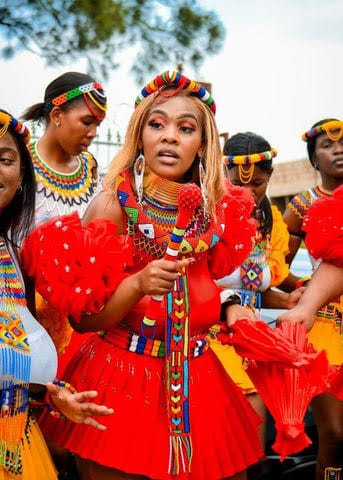
Next stop: Southern Africa, where the Zulu and Sotho communities offer powerful traditions involving lobola, blanket rituals, and unforgettable celebrations.
You’ll see how identity, heritage, and respect shape weddings in places like South Africa and Lesotho.
Quick FAQs on East African Weddings
Q: Why do Maasai brides wear so many beads?
A: Each bead represents something — like courage, peace, or prosperity — and reflects the bride’s social identity and family pride.
Q: Is Swahili marriage the same as Islamic marriage?
A: The Swahili wedding follows Islamic rules, especially with the Nikah, but adds unique coastal traditions like Taarab music and local dishes.
Q: Do modern Swahili weddings still use henna?
A: Yes, henna is still a beloved tradition, especially among women. It’s both spiritual and decorative.
Southern African Wedding Traditions — Respect, Rhythm, and the Power of Lobola
In Southern Africa, weddings are not just romantic unions — they’re contracts sealed with respect, tradition, and pride in heritage.
Among the Zulu and Sotho communities, weddings are serious business. From the negotiation table to the dance floor, every detail speaks of commitment, ancestry, and culture.
Let’s explore two powerful traditions — the Zulu of South Africa and the Sotho of Lesotho and parts of South Africa.
Zulu Wedding Traditions (South Africa)
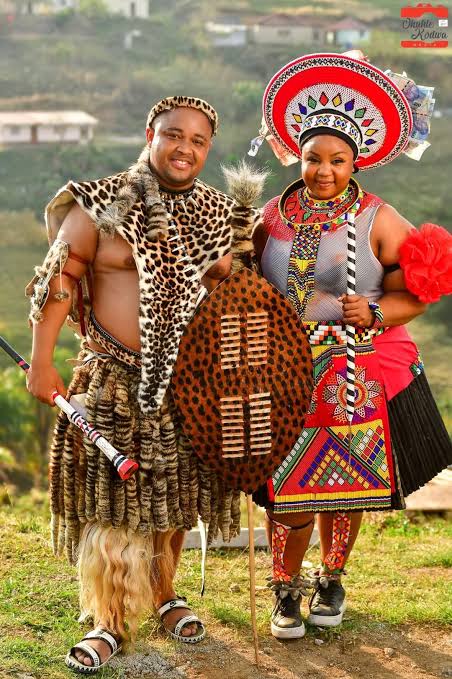
Keyword: Zulu lobola ceremony, Zulu traditional marriage
Ask any South African, and they’ll tell you — Zulu weddings are dramatic, colorful, and deeply symbolic.
And it all starts with one word: Lobola.
1. Lobola: More Than Bride Price
In Zulu culture, before anything else, the groom’s family must negotiate lobola with the bride’s family.
Traditionally, lobola was paid in cattle. These days, it’s usually converted into money, but the spirit remains the same — it’s not a “purchase,” it’s a mark of respect and a way to show the bride’s value to her family.
These negotiations aren’t rushed. Families often meet several times, discussing not just the amount but also what it means for both families going forward.
2. Traditional Attire: Bold, Beautiful, and Symbolic
On the big day, the Zulu bride is a vision of power and grace. She wears:
- A brightly beaded skirt
- Isicholo (a large, circular hat)
- Beaded necklaces and bangles
- Animal skin accessories
The groom? Equally majestic — often in leather garments, with a shield and spear for dramatic effect.
It’s not about intimidation. It’s about showing readiness to lead a household.
🔗 See real-life Zulu weddings on South Africa’s Heritage Portal
3. The Ceremony: Music, Dance, and Family Unity
Once the groom’s family arrives at the bride’s home, they are welcomed — sometimes playfully challenged — by songs and dances.
After formal introductions, elders bless the couple, and the celebration kicks off with:
- Zulu war dances (Indlamu)
- Drumming
- Feasting and traditional beer
- Gift exchanges between families
The wedding may stretch into multiple days, especially in rural areas.
Sotho Wedding Traditions (Lesotho/South Africa)
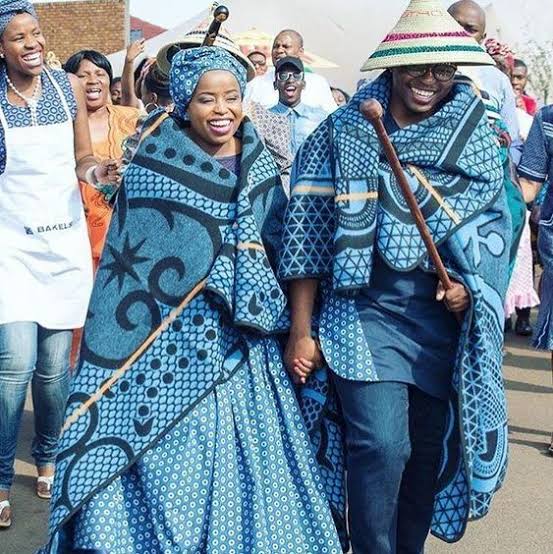
Keyword: Sotho traditional wedding, seanamarena blanket ritual
The Basotho people are known for their warmth, discipline, and rich storytelling culture. Their weddings reflect these values through rituals that are simple, yet deeply spiritual.
1. The Role of the Seanamarena Blanket
In Sotho weddings, clothing is key — especially the Seanamarena, a thick, patterned woolen blanket.
The bride and groom are wrapped in this blanket during parts of the ceremony, symbolizing:
- Protection
- Unity
- A warm start to marriage
This is more than just fashion — it’s a cultural inheritance, often passed down from elders.
2. Blessings from Elders
Before the wedding ceremony itself, elders from both families offer prayers and counsel. They give advice on:
- How to manage conflicts
- The importance of teamwork in marriage
- Raising children with integrity
These blessings are usually spoken in Sesotho, adding emotional weight.
3. Celebration That Lasts for Days
Sotho weddings are not “one-day” affairs.
There are pre-wedding rituals, wedding day ceremonies, and then post-wedding gatherings, where storytelling, drumming, and traditional songs bring people together.
Food is also a big part — expect dishes like papa, stewed meat, and local drinks shared communally.
Want to see what a Sotho wedding looks like? Check out this feature on Lesotho Times.
Zulu vs. Sotho: Different but United by Values
Although their customs are different, Zulu and Sotho weddings share some deep-rooted principles:
- Lobola or symbolic exchange of value
- Respect for elders and ancestors
- Celebration of community and family unity
- Bold traditional attire that represents identity
These are not just celebrations. They are community-rooted declarations of responsibility, pride, and future promise.
North African Wedding Traditions
From the deserts of Morocco to the heart of Egypt, we head to North Africa in the next part.
You’ll see how Berber traditions and Islamic influences come together in beautiful ways — with henna nights, musical processions, and dazzling jewelry.
Quick FAQs on Southern African Weddings
Q: What is lobola in Zulu tradition?
A: Lobola is a traditional bride price paid by the groom’s family to show respect and appreciation. It’s usually in cattle or cash.
Q: Why do Sotho couples wear blankets during their wedding?
A: The Seanamarena blanket symbolizes warmth, protection, and a united home. It’s a major symbol in Sotho culture.
Q: How long do Southern African traditional weddings last?
A: Depending on the family and region, celebrations can last several days, with different events before and after the main ceremony.
North African Wedding Traditions — Henna, Heritage, and Desert Elegance
North Africa brings something unique to the African wedding landscape — a graceful mix of ancient tribal rituals, Islamic customs, and rich cultural symbolism.
In countries like Morocco, Algeria, and Egypt, weddings are bold expressions of identity, joy, and spiritual unity.
In this part, we explore two unforgettable traditions: the Berber (Amazigh) weddings and Egyptian wedding ceremonies.
Berber (Amazigh) Wedding Traditions — Morocco & Algeria
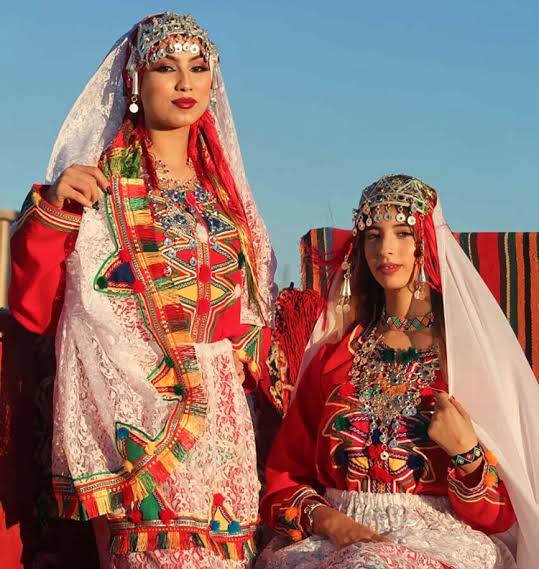
Berber traditional wedding customs
The Berbers, or Amazigh people, are one of Africa’s oldest ethnic groups.
Living mostly in Morocco and Algeria, their wedding ceremonies are vibrant, multi-day affairs rich with music, color, and storytelling.
1. Weddings That Last for Days
Forget one-day ceremonies. In many Berber communities, weddings stretch up to three to seven days, with each day focusing on different parts of the union:
- Day 1: Pre-wedding purification
- Day 2: Blessings, food, and gathering
- Day 3: Main ceremony and public procession
This long celebration gives the bride and groom time to transition fully into married life, surrounded by family, music, and tradition.
2. Symbolic Jewelry and Clothing
The Berber bride is dressed like a queen — covered in:
- Silver jewelry with traditional symbols
- Elaborate headpieces (sometimes with coins for protection)
- Heavy robes or kaftans embroidered with ancestral designs
Each piece has meaning. For example:
- Coins = protection from evil spirits
- Silver = purity and light
- Triangles = fertility and strength
The groom also dresses in a traditional robe called a djellaba and may wear a turban symbolizing maturity and leadership.
🔗 More on Amazigh wedding fashion here
3. Traditional Music and Sacred Songs
No Berber wedding is quiet. It’s filled with:
- Ahwash dances (group dances around drums)
- Ululations from the women to express joy
- Spiritual chants calling for blessings and good fortune
The rhythm of bendir drums and flutes echoes through the village or family compound, turning the entire event into a festival of love and culture.
Egyptian Wedding Traditions
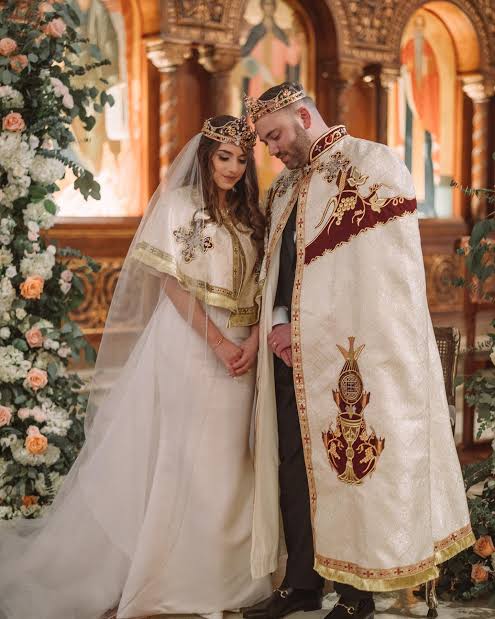
Egyptian wedding ceremony, henna night Egypt
In Egypt, wedding traditions combine Islamic beliefs, ancient Egyptian symbols, and modern glamour.
You might see a bride in a white gown, but the soul of the ceremony is still very African and deeply rooted in history.
1. Henna Night: Beauty and Blessings
Before the wedding day, Egyptian brides celebrate Henna Night (Laylat al-Hinna).
It’s an all-female event where the bride’s hands and feet are decorated with detailed henna patterns—believed to:
- Protect against evil
- Attract blessings
- Symbolize joy and beauty
Family members dance, sing, and gift the bride gold jewelry or perfumes. Some of these traditions date back to Pharaonic times.
2. The Zaffa Procession: Loud, Joyous, Unforgettable
One of the most iconic Egyptian wedding features is the Zaffa — a musical procession that announces the bride and groom’s entrance.
Expect:
- Loud drums
- Belly dancers
- Men with flaming swords
- Musicians shouting the couple’s names
The Zaffa turns the entire wedding venue into a lively stage — it’s not just an entrance; it’s a celebration of their union in public.
3. Traditional Meets Modern
While many urban Egyptian couples now use hotel halls, many still include elements like:
- The Mahr (Islamic bride gift from the groom)
- Recitation of Quranic verses
- Traditional feasts with dishes like mahshi, roasted lamb, and kushari
And of course, family elders are highly involved — offering prayers and advice before the celebrations begin.
What Sets North African Weddings Apart?
From the mountains of Morocco to the banks of the Nile, these weddings stand out for:
- Their fusion of Islamic and African traditions
- Emphasis on music, food, and blessings
- Rich use of jewelry, symbolism, and ancestry
Even with modern updates, many North African couples still hold tightly to heritage, honoring both their faith and family history.
Why These Traditions Still Matter Today
Now that we’ve travelled across Africa — from Ewe lands to Berber hills — it’s time to reflect on what all these weddings truly represent.
In the final part, we’ll look at modern influences, the importance of preserving these customs, and how today’s African youth are keeping traditions alive while creating their own paths.
North African Weddings
Q: Why do Berber brides wear silver jewelry?
A: Silver represents purity and is believed to protect the bride from bad energy or spiritual harm.
Q: What is a Zaffa in Egyptian weddings?
A: Zaffa is a musical wedding procession that celebrates the entrance of the bride and groom with drums, dancers, and chants.
Q: Do all North African weddings follow Islamic customs?
A: While many North African communities follow Islamic marriage rites, each ethnic group — like the Berbers — adds its unique cultural touch.
Why African Wedding Traditions Still Matter Today — Culture, Legacy, and Identity
African weddings are more than beautiful outfits, dance floors, or family feasts.
They are living stories — stories of ancestors, values, honor, and identity.
And in today’s fast-paced, Western-influenced world, these traditions are not dying. They’re evolving.
Whether it’s an Igbo bride in coral beads walking beside a groom in Gucci, or a Maasai couple combining beadwork with smartphones, one thing remains constant — the pride in heritage.
1. The Role of Tradition in Modern African Weddings
These days, many African couples are blending the old with the new.
You’ll see:
- Traditional introductions done over Zoom
- E-invites for village ceremonies
- Brides wearing lace George wrappers for one day and white gowns the next
But even with modern tools, the soul of the tradition is still intact.
Why? Because tradition gives meaning — something a hashtag alone cannot provide.
Real-life example?
In cities like Lagos, Accra, or Nairobi, it’s now common to have a two-part wedding:
- Traditional ceremony with family rites, gifts, and ancestral blessings
- Religious or civil ceremony for legal purposes
This mix ensures couples don’t lose their roots while embracing the present.
2. Weddings as Tools for Cultural Preservation
In many communities, weddings are one of the last surviving public cultural ceremonies.
Young people may no longer speak their native languages, but during weddings:
- They wear the traditional attire
- They participate in old customs
- They listen to elders pray and pour libations
- They revive songs and dances from their village
These are not just events. They’re cultural archives, happening live, in front of hundreds.
3. Economic and Social Impact
Traditional weddings are also big business across Africa.
From fabric sellers in Aba and kente weavers in Kumasi, to drummers in Soweto or henna artists in Cairo, weddings support entire value chains rooted in African culture.
According to a 2024 report by BusinessDay Nigeria, the traditional wedding industry contributes over ₦800 billion annually to the Nigerian economy alone — from food, drinks, fashion, photography, music, and more.
And beyond the money, weddings are where:
- Family ties are strengthened
- Old friends reunite
- Generations pass down wisdom
4. Preserving African Wedding Customs in the Diaspora
Even abroad, African couples are keeping traditions alive.
From Nigerians in the UK to Ghanaians in Canada or Somalis in the U.S., many still host traditional ceremonies, wearing ancestral clothing and involving extended families via livestream or travel.
Some even fly elders over just to “knock on the door” or perform lobola negotiations properly.
It’s a beautiful thing — seeing African traditions refusing to be erased, even thousands of miles from home.
5. Challenges and the Way Forward
Yes, there are challenges:
- Some young people see traditions as “old school”
- Bride price customs are sometimes misinterpreted as “buying a woman”
- Commercialization has made some weddings feel less meaningful
But that’s why education is key.
We must tell the stories — the real reasons behind each ritual, each outfit, each dance — so the next generation understands the value behind the beauty.
Final Thoughts: African Love and Legacy
African weddings are not just about romance.
They are symbolic contracts, family reunions, and spiritual journeys.
Whether in the dusty plains of Maasailand, the bustling streets of Enugu, or the coastal towns of Zanzibar, these customs prove one thing — Africa remembers.
And by preserving these traditions, we’re not just honoring our past.
We’re also shaping a stronger, prouder African future.
African Wedding Traditions
Q: Why are African weddings so important culturally?
A: They go beyond two individuals — they unite families, celebrate ancestry, and preserve tribal identity and values.
Q: Can you mix modern weddings with African traditions?
A: Absolutely. Many couples today blend traditional and modern ceremonies to honor their heritage and meet legal/religious needs.
Q: Are African wedding traditions fading?
A: No. While they’re evolving, many African youths are proudly reclaiming and practicing traditional customs — both at home and in the diaspora.
Q: Is bride price still practiced across Africa?
A: Yes, though it varies by culture. It’s seen as a symbolic show of respect, not a financial transaction.
Q: Why are traditional outfits so important in African weddings?
A: They represent identity, history, and pride. Every bead, cloth, or accessory carries meaning rooted in the wearer’s tribe.

